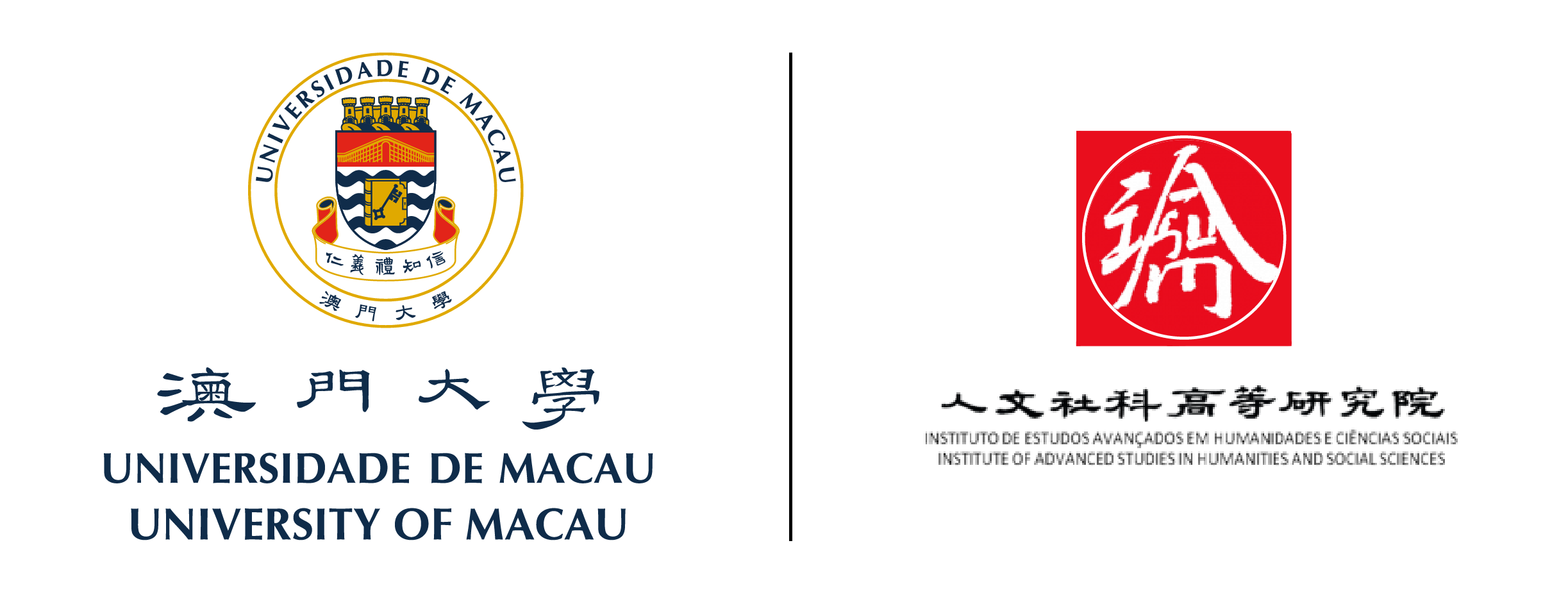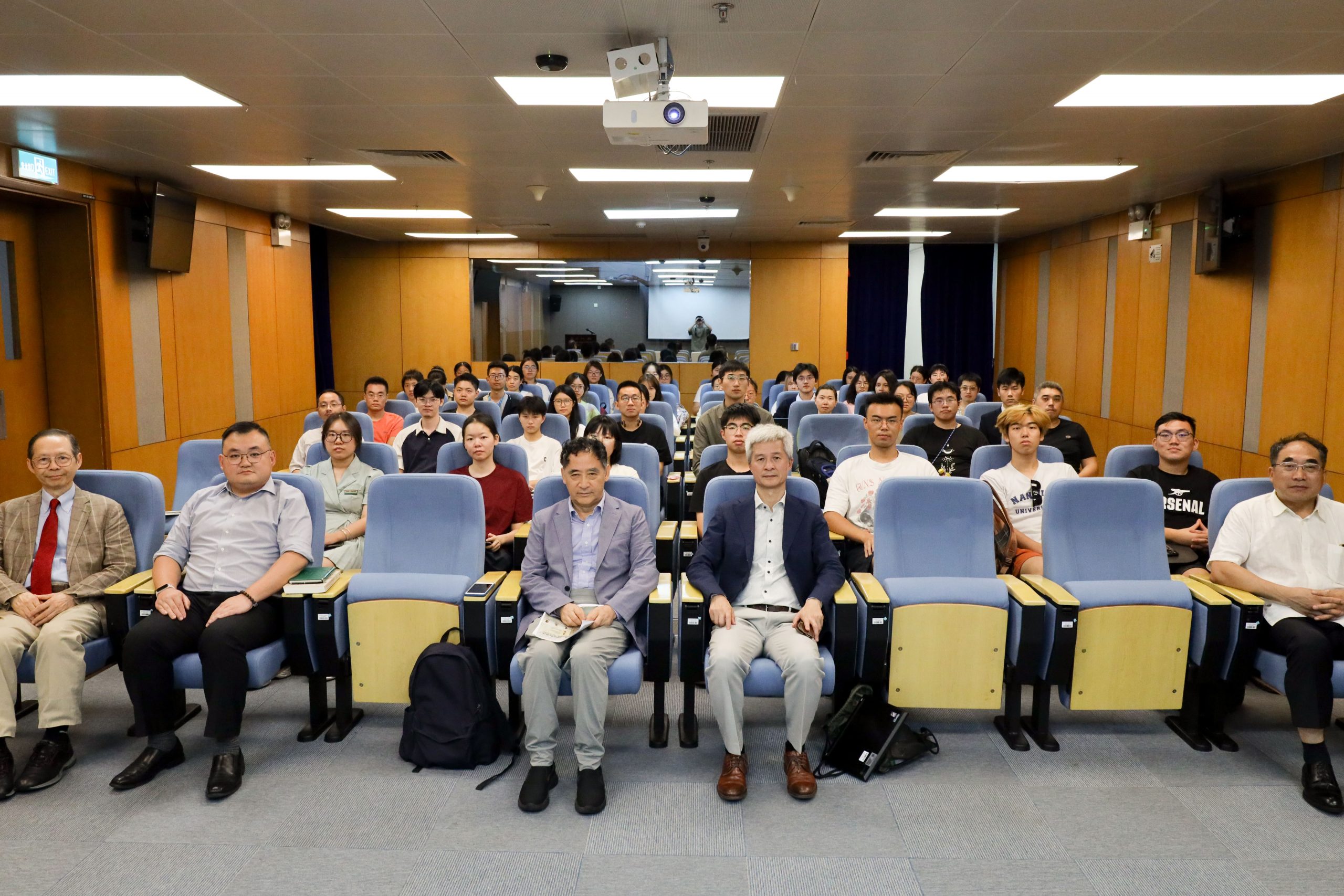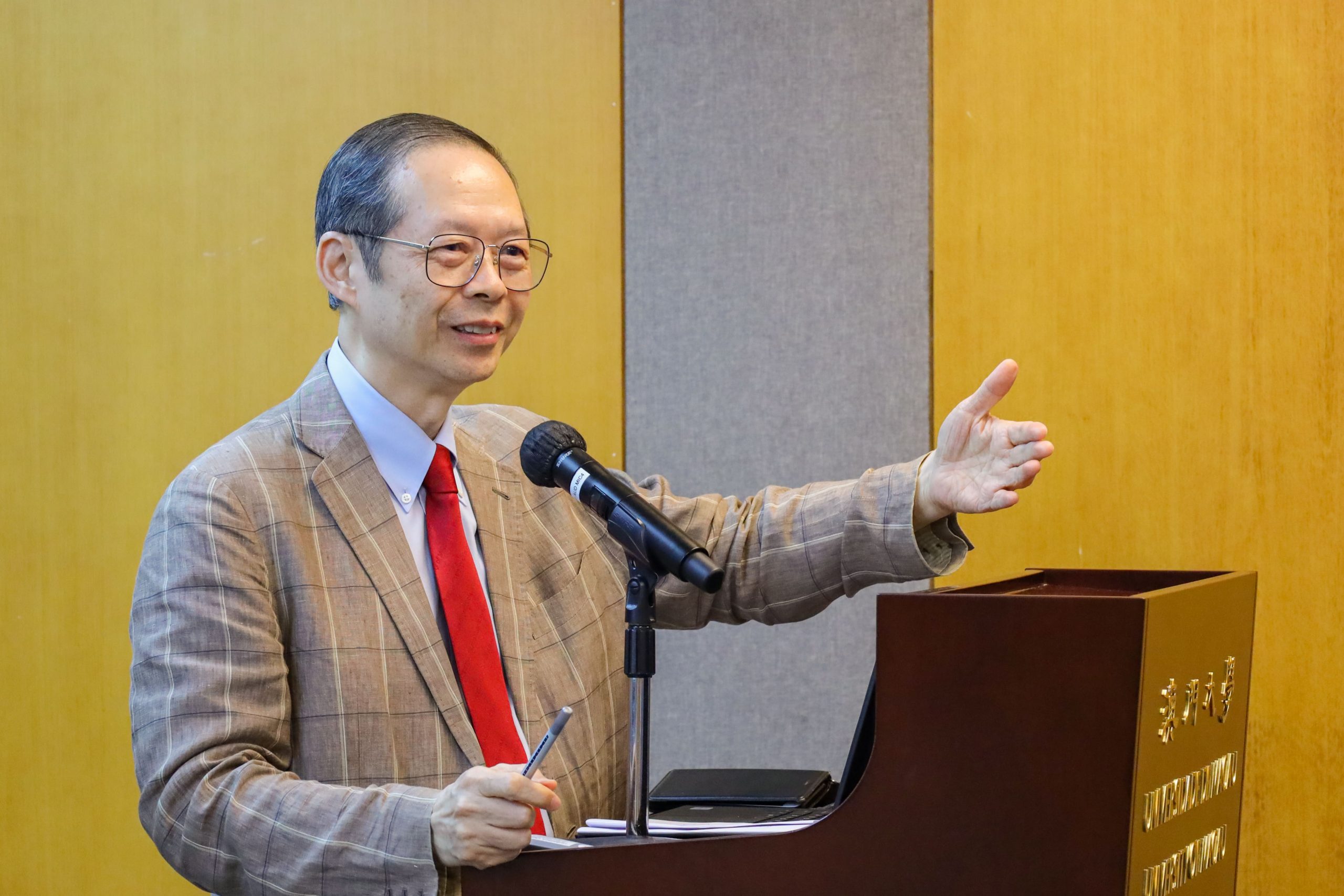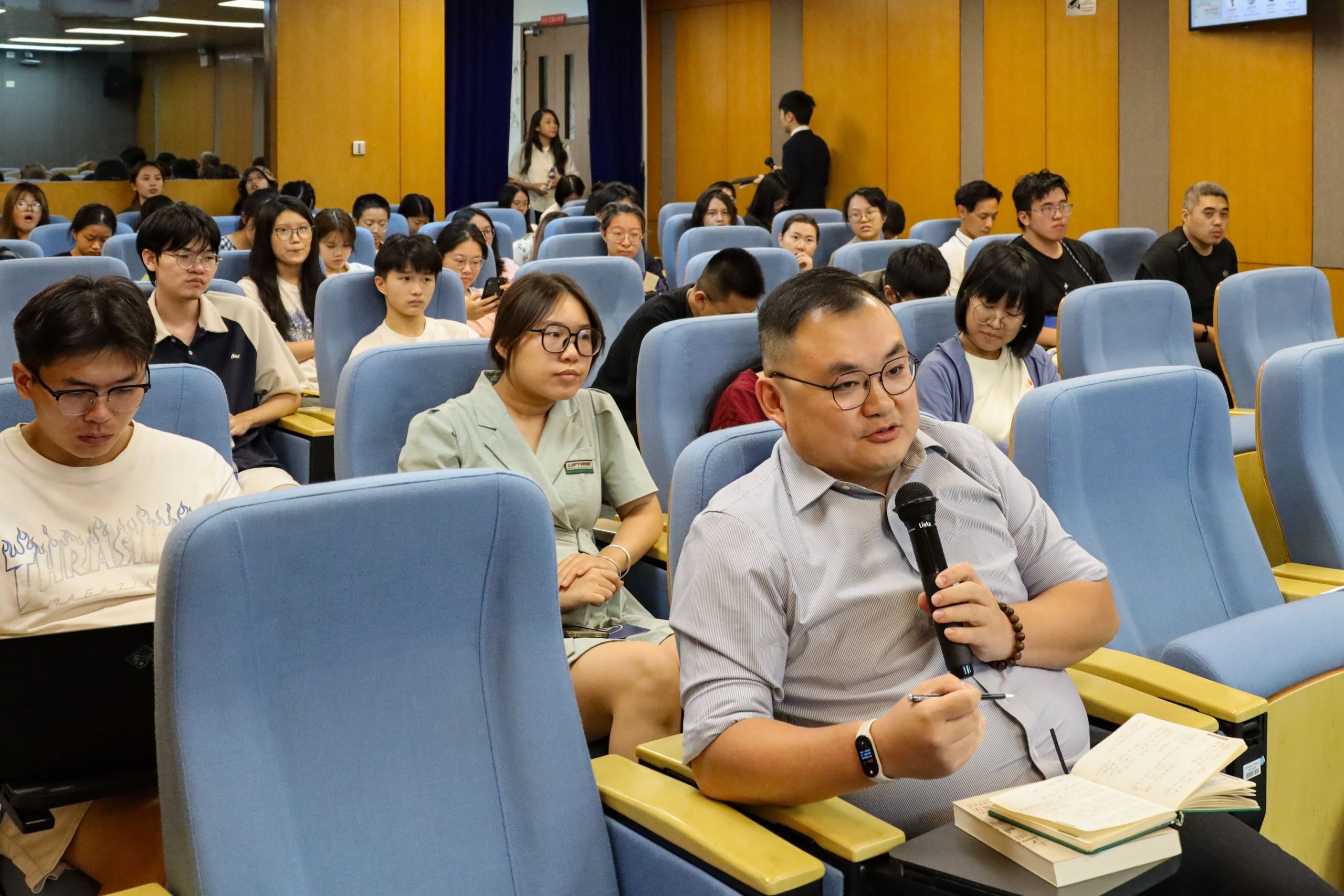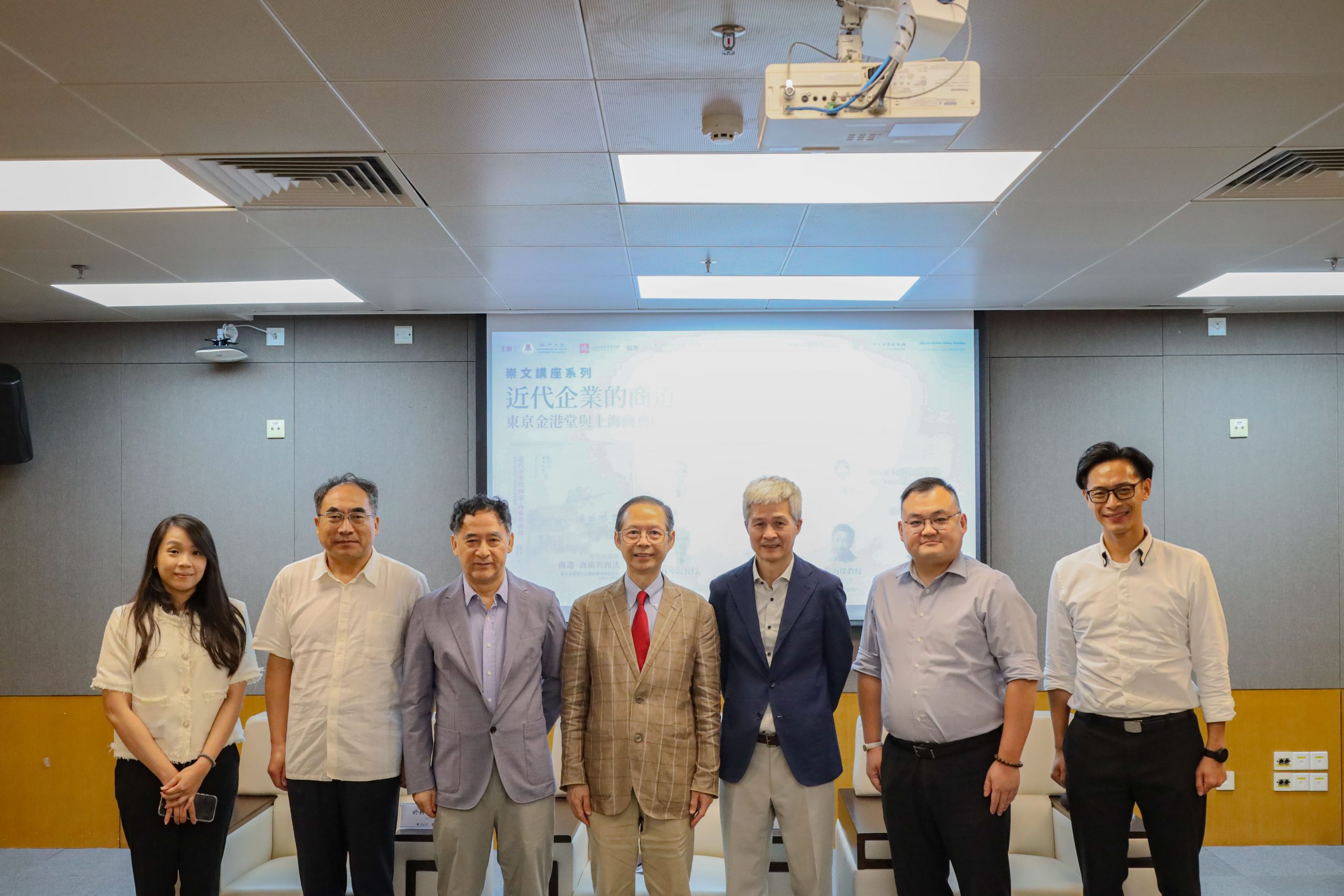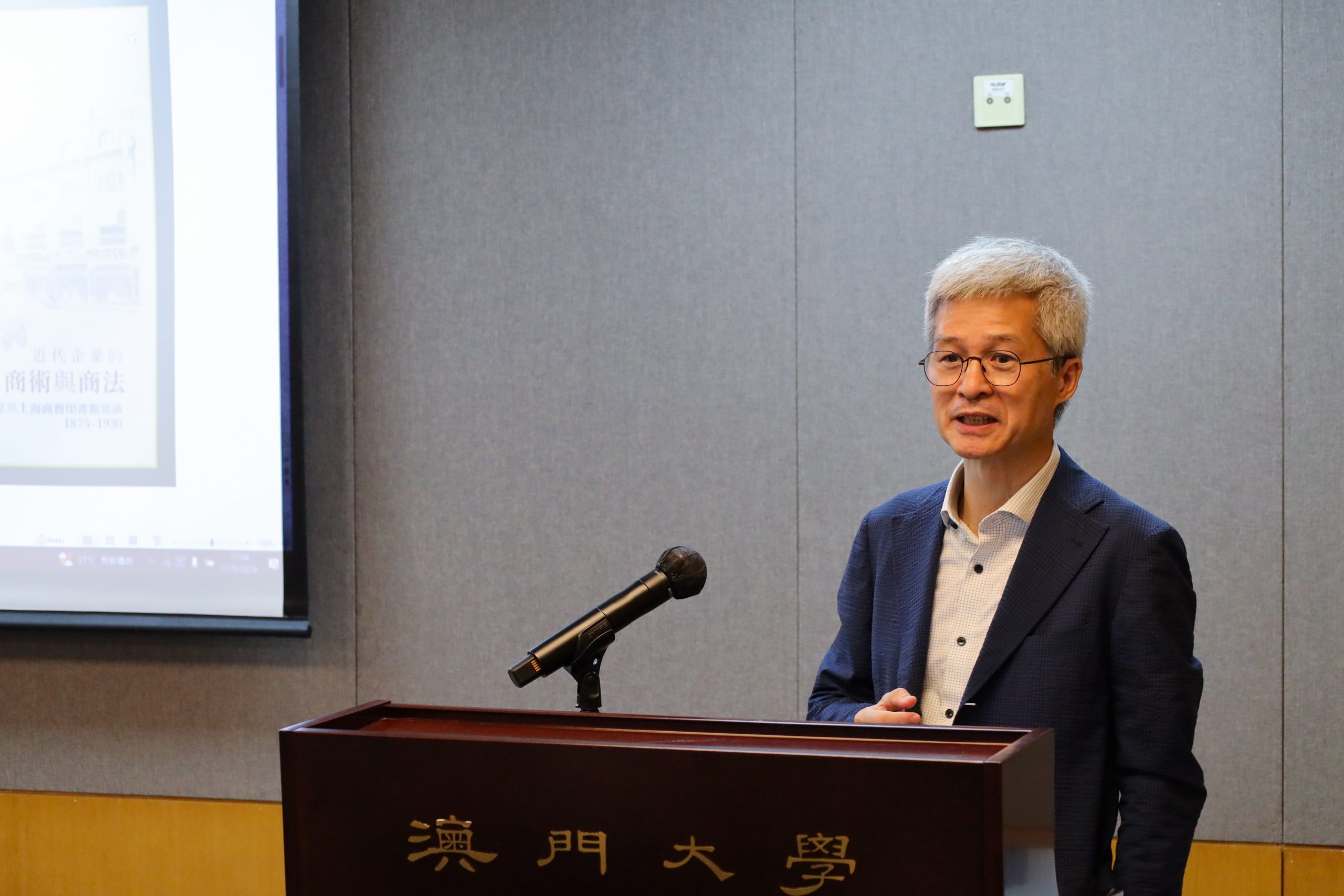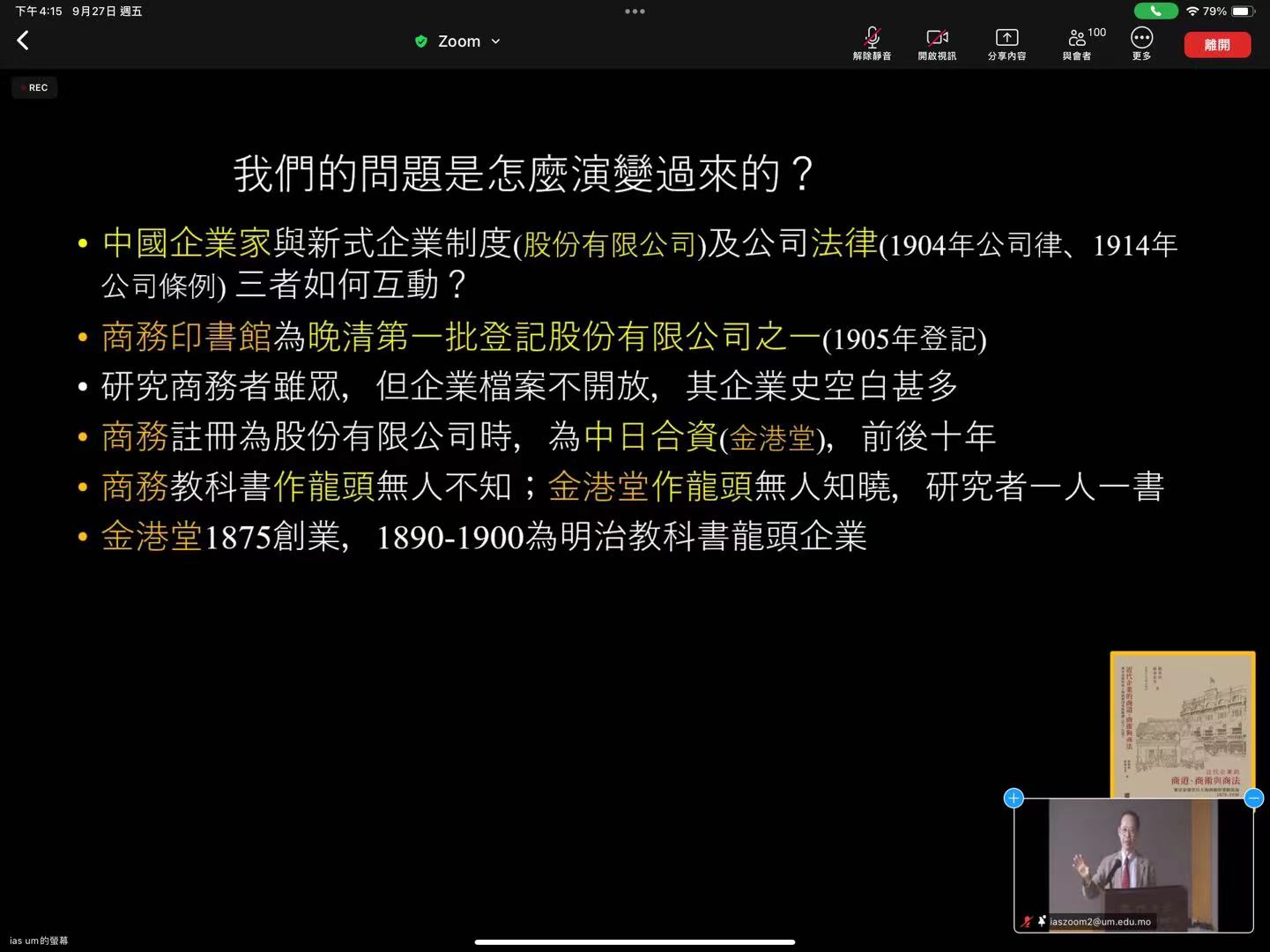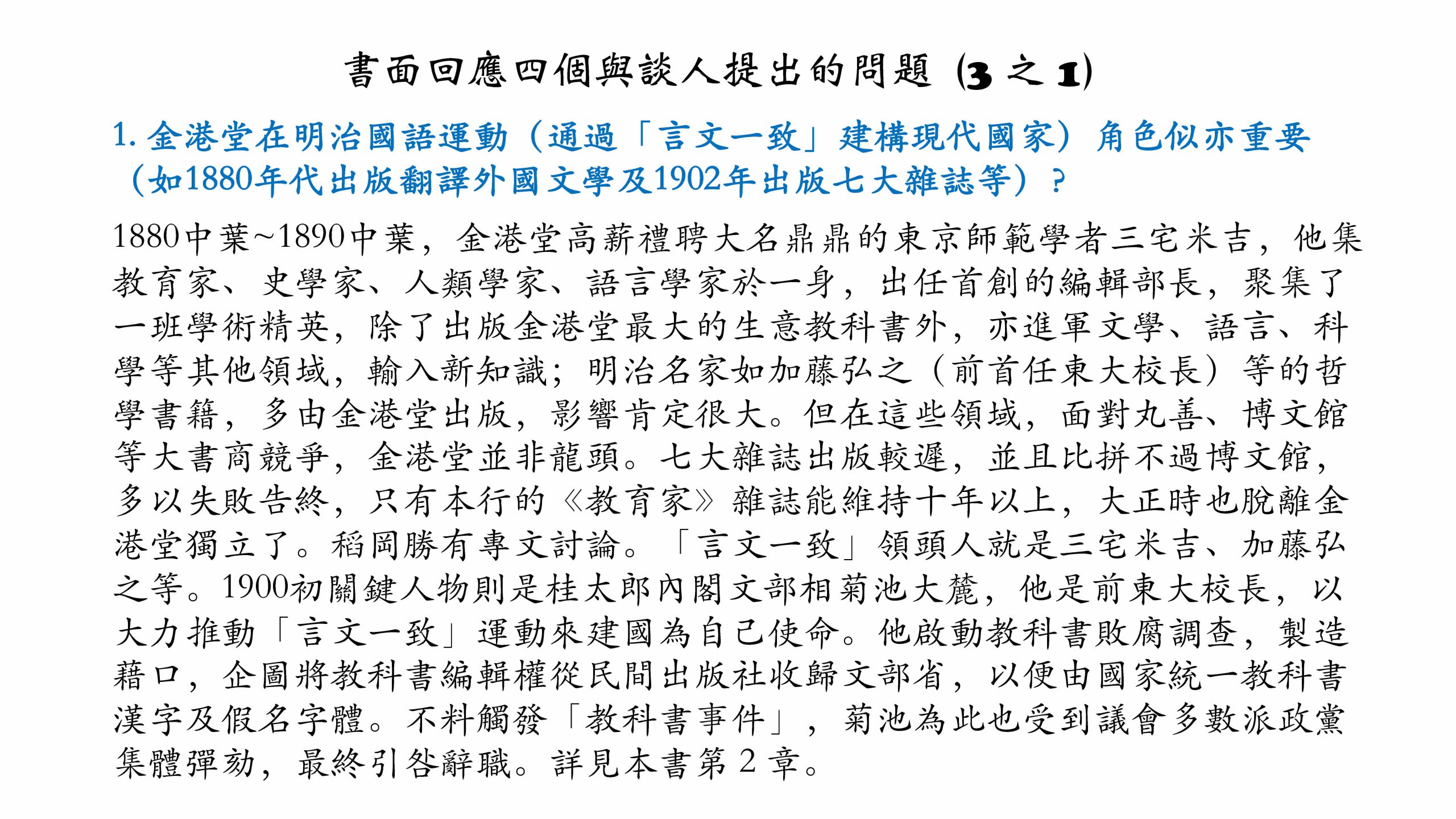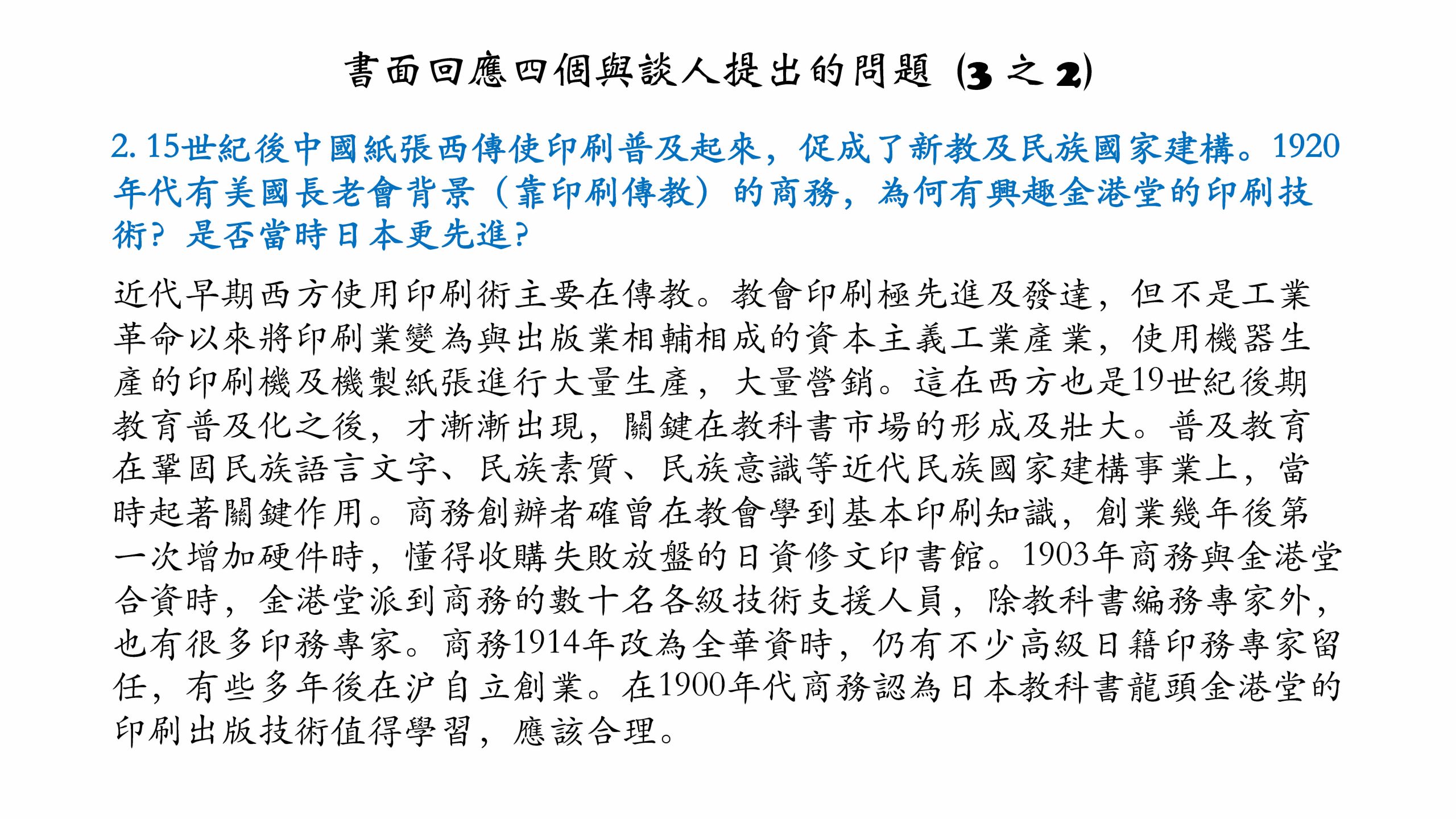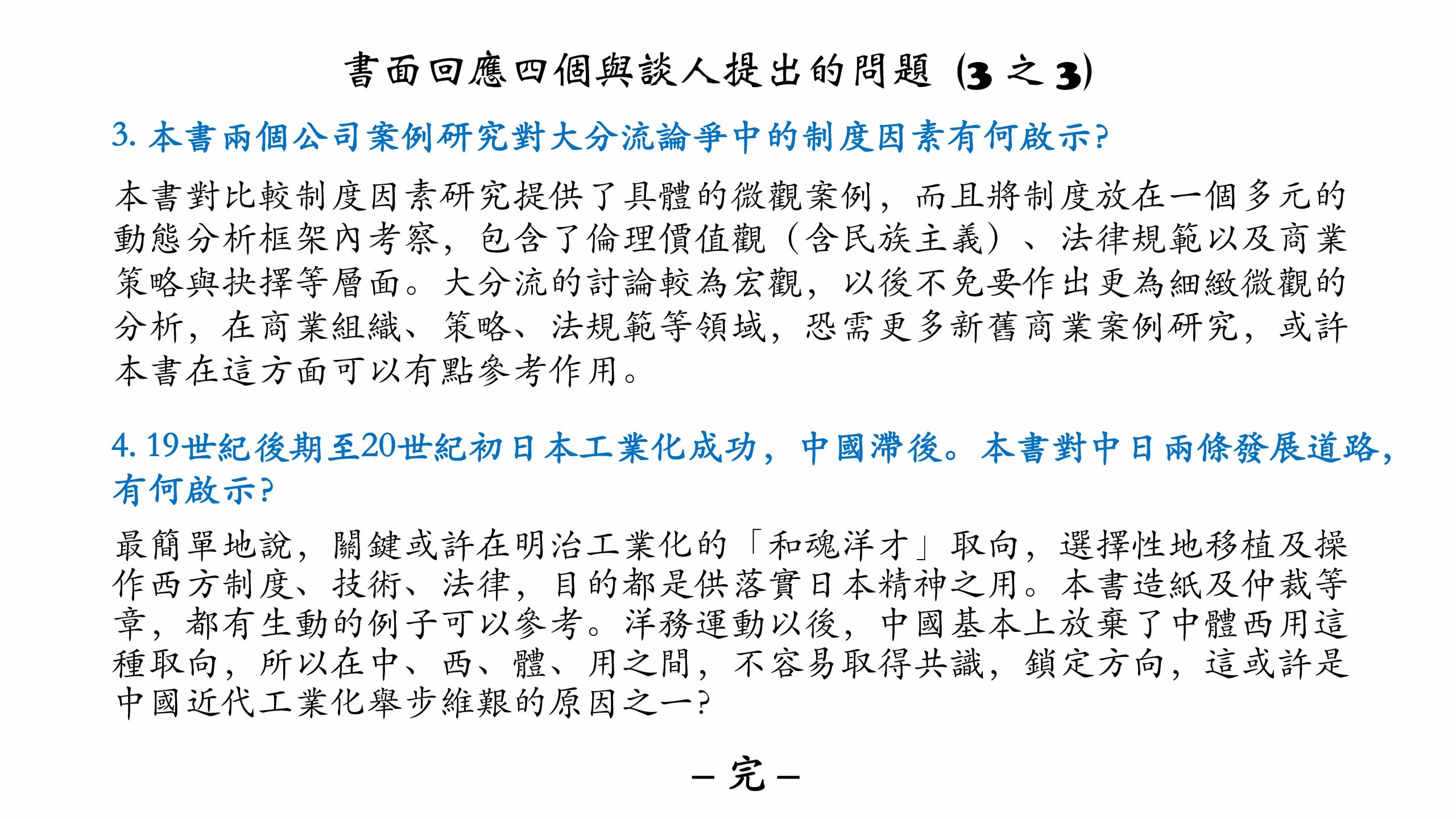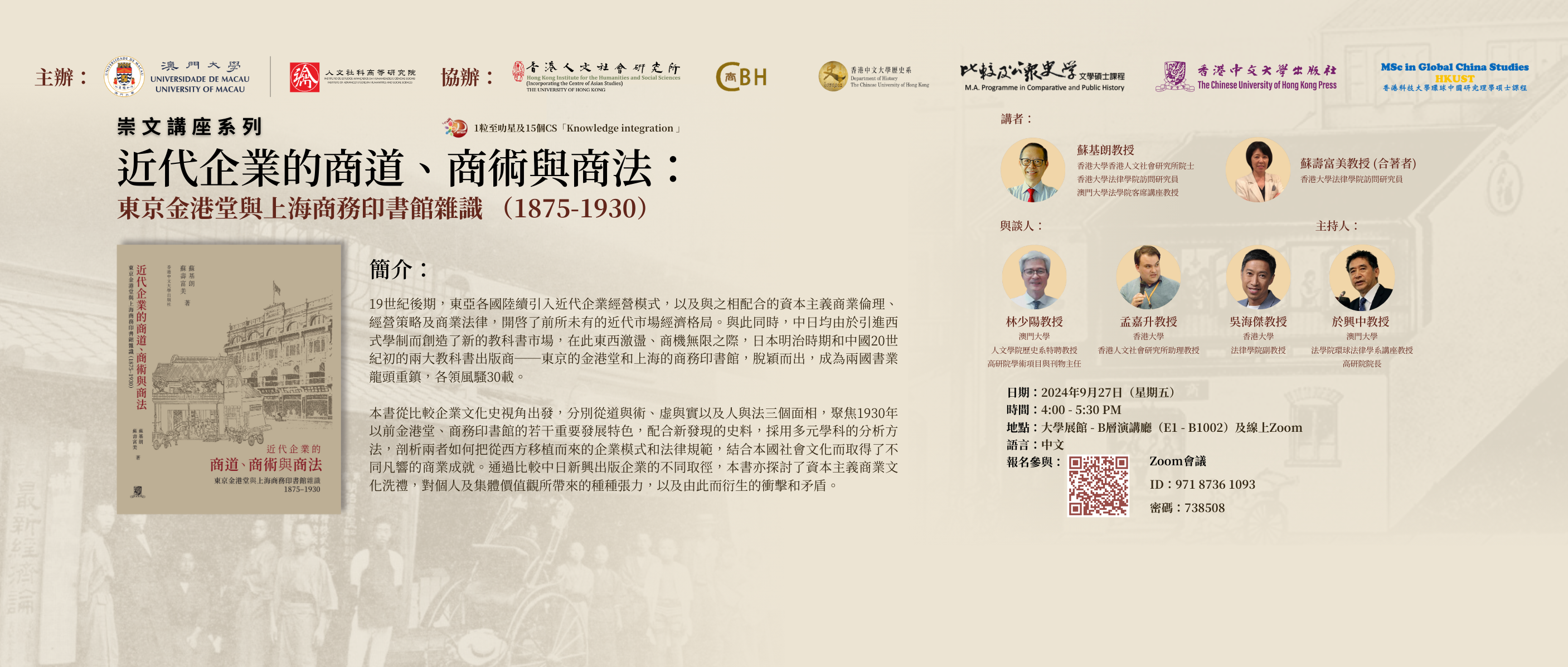
On September 27 2024, Lecture on Frontiers in Humanities was successfully held at University Gallery Auditorium, jointly organized by the Institute of Advanced Studies in Humanities and Social Sciences (IAS) of University of Macau, the Hong Kong Institute for the Humanities and Social Sciences and Chinese Business History cluster, the Department of History and the M.A. Programme in Comparative and Public History of the Chinese University of Hong Kong, the MSc in Global China Studies program of the Hong Kong University of Science and Technology and the Chinese University of Hong Kong Press.
The theme of this lecture was “Morality, Rationality, and Legality of Modern Corporations: Tōkyō Kinkōdō and Shanghai Commercial Press (1875-1930).” It was convened by Professor Billy K. L. So, Fellow of the Hong Kong Institute for the Humanities and Social Sciences, Visiting Fellow of the Faculty of Law at The University of Hong Kong, and Adjunct Chair Professor of the Faculty of Law at the University of Macau. Professor Shaoyang Lin, Distinguished Professor of the Department of History of the Faculty of Arts and Humanities at the University of Macau, Head of Academic Programme and Publication of IAS, Professor Ghassan Moazzin, Assistant Professor of Hong Kong Institute for the Humanities and Social Sciences of the University of Hong Kong and Professor Michael Ng, Associate Professor of the Faculty of Law of the University of Hong Kong, were invited as discussants. Professor Xingzhong Yu, Chair Professor at the Faculty of Law at the University of Macau and Director of IAS served as moderator.
Professor So first proposed how Chinese entrepreneurs interact with the new corporate regulations and company laws. He introduced the relevant history of the Commercial Press as one of the first registered limited companies in the late Qing Dynasty and Kinkōdō as the leading enterprise among the first batch of limited companies in the Meiji period. Professor So introduced the two corporations’ different management and business modes, drawing reasons and conclusions for Kinkōdō’s decline and the Commercial Press’s prosperity.
Professor Lin proposed the connections between the spread of printing technology to Europe, the rise of Protestantism, the formation of nations, the relationship between printing technology in China and Japan, and the development of national corporations like the Commercial Press. Professor Ng suggested that during the significant changes in the Republic of China in the 20th century, there were shifts in business models and printing technology, along with potential changes in folk customs and public thought patterns. He also highlighted the spirit of modern printing industry entrepreneurs.
Professor Moazzin proposed the Great Divergence issue as the inspiration for this book, which explores the distinct paths of economic development taken by Japan and China during the 19th and 20th centuries. He raised questions about how the two authors researched the book and gathered a lot of firsthand historical materials.
During the discussion, Professor So addressed questions from a micro perspective regarding the reliability of the Chinese and Japanese printing industries. He also discussed the challenges encountered during the ten-year collaboration between the Kinkōdō and the Commercial Press.
The event drew almost 170 participants, both online and on-site, sparking lively discussions on the morality, rationality and legality of modern enterprises.

